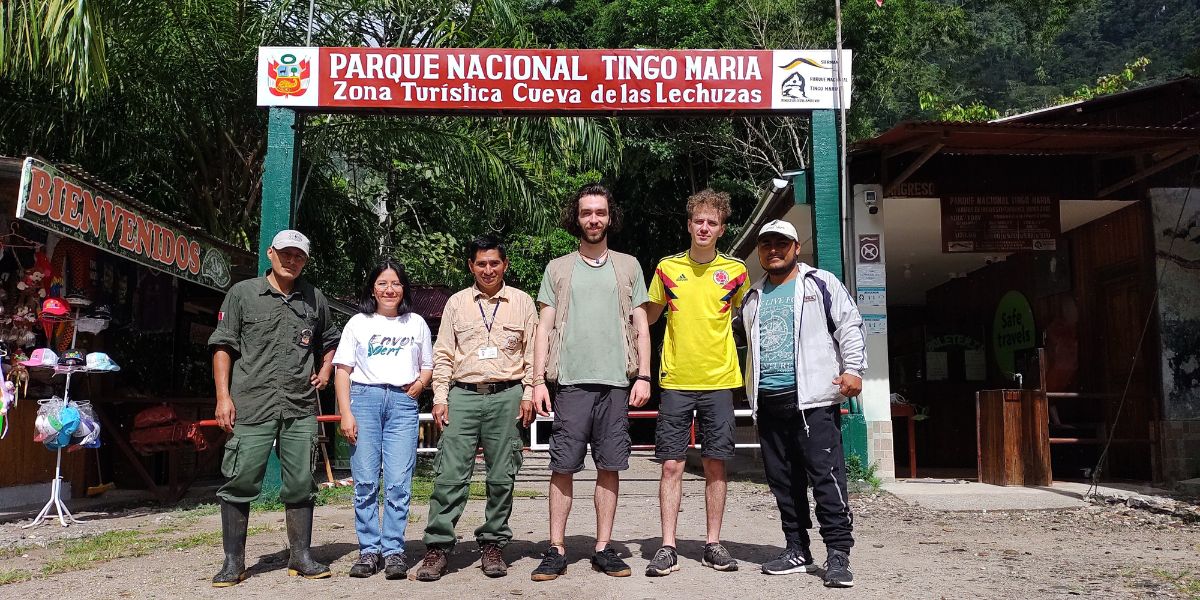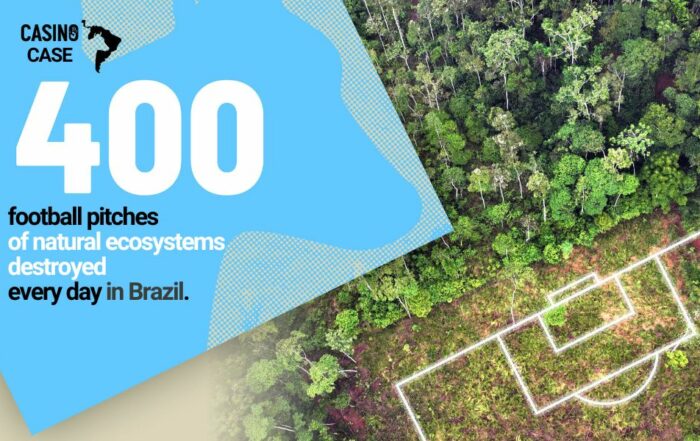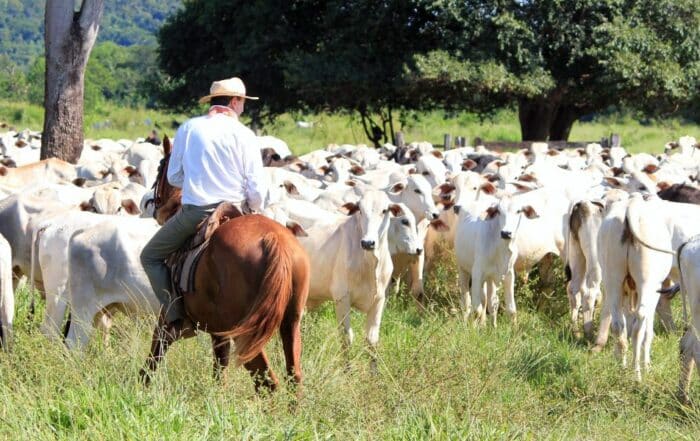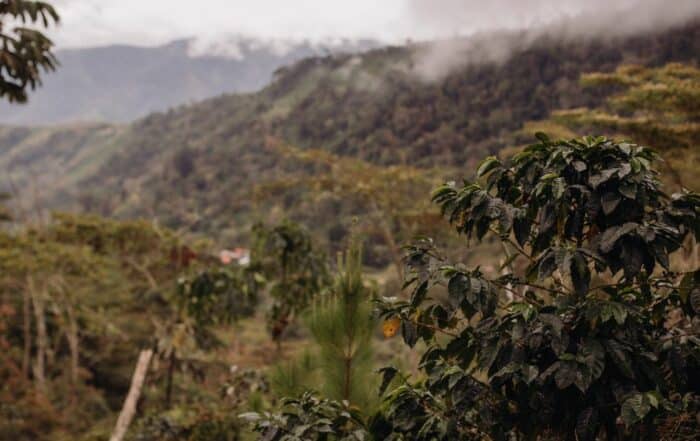In July 2022, Envol Vert and the participants launched an economic alternative for native bee honey. During our visits, we discovered nests of these bees in their own homes, which was very encouraging. The workgroups have shown a positive and enthusiastic response to this initiative.
In December 2022, the next phase of this activity took place, showcasing the different stages of this activity and highlighting its importance within the Coffee-Cocoa Agroforestry Project in the Peruvian Amazon. Following our methodology based on the Agroforestry Route, the numerous benefits of raising native bees were emphasized, such as hive division capacity, as well as honey and pollen production, among others.
Why are native bees important?
Native bees not only provide economic benefits to farmers but also play a crucial role in preserving our forests. By promoting the breeding of native bees and honey production, we are directly contributing to biodiversity preservation and the protection of our natural ecosystems.
Furthermore, the production of honey by native bees holds exceptional value. The honey from these bees is cherished for its unique taste and beneficial properties for health. By promoting the breeding and production of honey from native bees, we would generate a sustainable source of income for farmers while encouraging the conservation of these species.
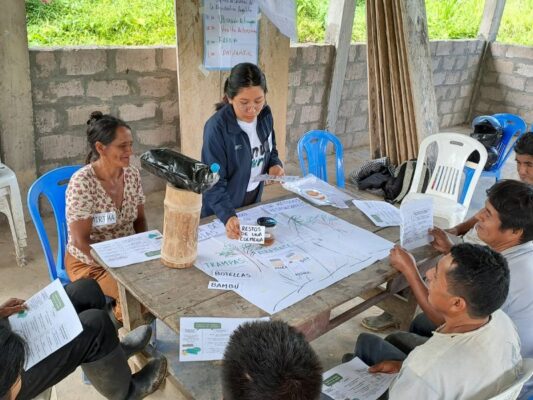
Capacitación “Captura de colonias”, Tingo Maria
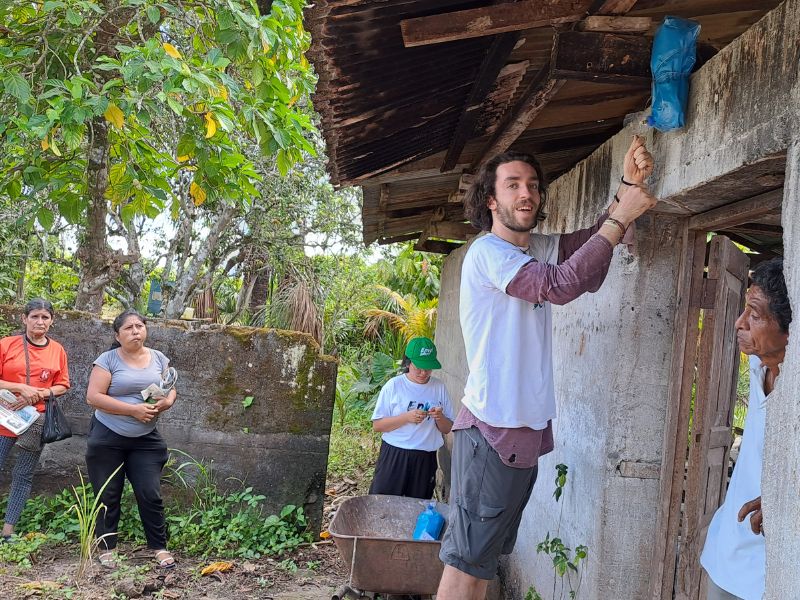
Installation of traps in Pueblo Nuevo
What training have we conducted with the participants? And what was their perception?
In April and May 2023, two training sessions were conducted: Introduction to Meliponas and Trigonas, and the capture of colonies of Tetragonisca angustula (“angelita” or “niña“) using responsible methods.
During the first training session, our participants shared their experiences and skills related to bees. Questions were asked about the presence of bees, the flowers they visit, and the structure of their hives. Photographs of different bee species were observed, and aspects such as their biological cycle, habitat, diet, and honey production were discussed. The biological enemies of these bees were also addressed. A practical application was conducted to debate the location and organization of communal hives. In groups, reflections and debates took place on these topics.
In the second training session, testimonials and anecdotes related to the use of bee traps were shared. The participants formed a circle and answered questions about their experiences, such as using traps and capturing bees in the forest. Next, a group reflection was conducted, gathering and discussing the shared knowledge. The abstract conceptualization of capturing colonies of Tetragonisca angustula “angelitas” was presented, including trap construction and the use of attractants. Finally, a practical application took place to discuss the strategic placement of traps and reflect on their purpose.
At the end of the training sessions, the participants were highly motivated to continue attending the upcoming sessions, which will focus on developing the economic alternative of native bee honey.
Conclusions
The establishment of this economic alternative for native bee honey not only offers economic benefits to farmers but also promotes environmental sustainability and forest conservation. We are thrilled to continue collaborating on this project and enjoy the economic and environmental benefits provided by native bees and their delightful honey.
We will continue to work closely with our participants and partners on the ground, providing training and technical support to ensure the success of this economic alternative. Our commitment is to promote forest protection and the sustainable use of resources, thereby strengthening the link between agriculture and conservation.
Stay tuned for our upcoming articles, where we will share updates on the progress of this activity.
In July 2022, Envol Vert and the participants launched an economic alternative for native bee honey. During our visits, we discovered nests of these bees in their own homes, which was very encouraging. The workgroups have shown a positive and enthusiastic response to this initiative.
In December 2022, the next phase of this activity took place, showcasing the different stages of this activity and highlighting its importance within the Coffee-Cocoa Agroforestry Project in the Peruvian Amazon. Following our methodology based on the Agroforestry Route, the numerous benefits of raising native bees were emphasized, such as hive division capacity, as well as honey and pollen production, among others.
Why are native bees important?
Native bees not only provide economic benefits to farmers but also play a crucial role in preserving our forests. By promoting the breeding of native bees and honey production, we are directly contributing to biodiversity preservation and the protection of our natural ecosystems.
Furthermore, the production of honey by native bees holds exceptional value. The honey from these bees is cherished for its unique taste and beneficial properties for health. By promoting the breeding and production of honey from native bees, we would generate a sustainable source of income for farmers while encouraging the conservation of these species.

Capacitación “Captura de colonias”, Tingo Maria

Installation of traps in Pueblo Nuevo
What training have we conducted with the participants? And what was their perception?
In April and May 2023, two training sessions were conducted: Introduction to Meliponas and Trigonas, and the capture of colonies of Tetragonisca angustula (“angelita” or “niña“) using responsible methods.
During the first training session, our participants shared their experiences and skills related to bees. Questions were asked about the presence of bees, the flowers they visit, and the structure of their hives. Photographs of different bee species were observed, and aspects such as their biological cycle, habitat, diet, and honey production were discussed. The biological enemies of these bees were also addressed. A practical application was conducted to debate the location and organization of communal hives. In groups, reflections and debates took place on these topics.
In the second training session, testimonials and anecdotes related to the use of bee traps were shared. The participants formed a circle and answered questions about their experiences, such as using traps and capturing bees in the forest. Next, a group reflection was conducted, gathering and discussing the shared knowledge. The abstract conceptualization of capturing colonies of Tetragonisca angustula “angelitas” was presented, including trap construction and the use of attractants. Finally, a practical application took place to discuss the strategic placement of traps and reflect on their purpose.
At the end of the training sessions, the participants were highly motivated to continue attending the upcoming sessions, which will focus on developing the economic alternative of native bee honey.
Conclusions
The establishment of this economic alternative for native bee honey not only offers economic benefits to farmers but also promotes environmental sustainability and forest conservation. We are thrilled to continue collaborating on this project and enjoy the economic and environmental benefits provided by native bees and their delightful honey.
We will continue to work closely with our participants and partners on the ground, providing training and technical support to ensure the success of this economic alternative. Our commitment is to promote forest protection and the sustainable use of resources, thereby strengthening the link between agriculture and conservation.
Stay tuned for our upcoming articles, where we will share updates on the progress of this activity.

